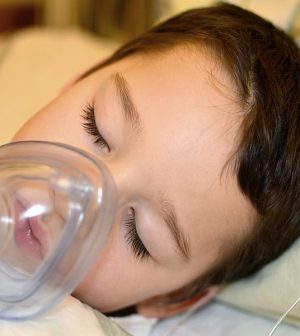- Recognizing the Signs of Hypothyroidism
- 10 Strategies to Overcome Insomnia
- Could Artificial Sweeteners Be Aging the Brain Faster?
- Techniques for Soothing Your Nervous System
- Does the Water in Your House Smell Funny? Here’s Why
- Can a Daily Dose of Apple Cider Vinegar Actually Aid Weight Loss?
- 6 Health Beverages That Can Actually Spike Your Blood Sugar
- Treatment Options for Social Anxiety Disorder
- Understanding the Connection Between Anxiety and Depression
- How Daily Prunes Can Influence Cholesterol and Inflammation
Adding in Stem Cell Therapy Helps Beat a Common Childhood Leukemia

Combining stem cell transplants with cutting-edge immunotherapy prevents leukemia relapses in young people and improves their chances of survival, new research suggests.
Acute lymphoblastic leukemia is the most common childhood cancer.
This study included 50 patients (ages: 4 to 30) with acute lymphoblastic leukemia who received CAR T-cell therapy. The treatment genetically modifies a patient’s own immune cells to make them more effective at killing cancer. (CAR is shorthand for chimeric antigen receptor.)
While CAR-T cell therapy provides complete remission in between 60% and 100% of patients initially, many relapse. One study found that more than 40% had relapsed 13 months after treatment.
This study investigated whether stem cell transplants could help prevent relapses in patients who had undergone CAR T-cell treatment.
Of 21 patients who received a transplant of donor stem cells after CAR T-cell therapy, 9.5% had relapsed 24 months later, the study found. All of the patients who didn’t have a stem cell transplant had relapsed by that point.
The findings — published recently in the Journal of Clinical Oncology — suggest that stem cell transplants offer long-term benefits for young patients who get CAR T-cell therapy, according to the University of Virginia researchers.
“More than 50% of kids in other studies with a different CAR relapse, with the majority of them losing the target the CAR goes after,” said Dr. Daniel Lee, a pediatric oncologist and director of Pediatric Stem Cell Transplant and Immunotherapy at UVA Children’s Hospital in Charlottesville.
“Most of these kids have a single shot at this life-saving and paradigm-changing therapy called CAR T-cells. We should do all we can to maximize the chance for a cure, and right now that means a transplant after CAR therapy for most,” Lee added.
He noted that many parents turn to CAR T-cells in hopes of avoiding a stem cell transplant.
“But,” he added, “there is a window of opportunity after CARs to cure more of these incurable kids with a transplant; our study demonstrates this.”
More information
The American Cancer Society has more on acute lymphoblastic leukemia.
SOURCE: University of Virginia, news release, March 31, 2021
Source: HealthDay
Copyright © 2026 HealthDay. All rights reserved.










